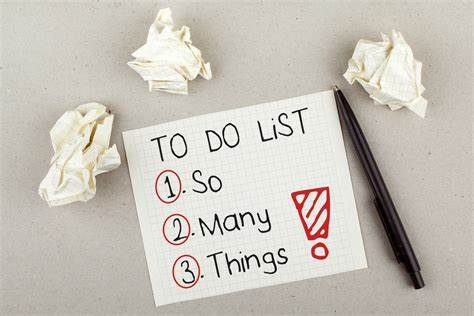Managing time effectively as a family can be challenging, but it’s essential for ensuring that everyone’s needs are met and that you make the most of each day. Here are some strategies to help you efficiently manage your family’s time and create a harmonious and productive household.
1. Establish a Family Calendar
One of the most effective ways to manage time is to keep a family calendar. This can be a physical calendar in a common area or a shared digital calendar accessible to all family members. Include school schedules, work commitments, extracurricular activities, appointments, and family events. Regularly update the calendar to keep everyone informed and to avoid scheduling conflicts.

2. Prioritize Activities
Not all activities are equally important. Prioritize tasks and events based on their urgency and importance. Use a system like the Eisenhower Matrix to categorize activities into four quadrants:
- Urgent and Important: Tasks that need immediate attention.
- Important but Not Urgent: Tasks that are significant but can be scheduled for later.
- Urgent but Not Important: Tasks that need to be done soon but are not crucial.
- Not Urgent and Not Important: Tasks that can be minimized or eliminated.
This approach helps focus on what truly matters and ensures that essential tasks are not overlooked.
3. Create Routines and Schedules
Establishing daily routines can help streamline family activities and reduce decision fatigue. Create morning, after-school, and bedtime routines that everyone follows. Having a set schedule helps children understand what to expect and reduces stress for parents. Be sure to include time for homework, chores, meals, and relaxation.
4. Delegate Responsibilities
Involve all family members in managing the household. Assign age-appropriate tasks to children and share responsibilities among adults. Delegating tasks not only reduces the burden on one person but also teaches children valuable life skills and the importance of teamwork.
5. Limit Screen Time
Screen time can be a significant time-waster if not managed properly. Set limits on the amount of time spent on TVs, computers, and mobile devices. Encourage engaging in other activities such as reading, playing outside, or family games. Consider having screen-free times or zones in the house to promote more meaningful interactions.
6. Plan Meals in Advance
Meal planning can save a considerable amount of time and reduce daily stress. Plan your meals for the week, make a grocery list, and do the shopping in one trip. Preparing meals in advance or batch cooking can also help save time during busy weekdays. Involve family members in meal preparation to make it a collaborative and enjoyable activity.
7. Set Realistic Goals
When planning your day or week, set realistic and achievable goals. Overloading your schedule can lead to burnout and frustration. Be mindful of your family’s energy levels and capacities. It’s better to accomplish a few tasks well than to do many tasks poorly.
8. Make Time for Fun and Relaxation
Don’t forget to schedule time for fun and relaxation. Family time should not be all about chores and obligations. Plan activities that everyone enjoys, such as family outings, game nights, or simply spending time together. These moments are essential for building strong family bonds and creating lasting memories.
9. Communicate Effectively
Good communication is key to effective time management. Hold regular family meetings to discuss schedules, upcoming events, and any issues that need to be addressed. Ensure that everyone has a chance to voice their opinions and concerns. This helps to ensure that everyone is on the same page and reduces misunderstandings.
10. Be Flexible and Adaptable
No matter how well you plan, unexpected events can disrupt your schedule. Be prepared to adapt and adjust your plans as needed. Flexibility is crucial in maintaining a balanced and stress-free family life. Learn to prioritize and let go of less important tasks when necessary.
Conclusion
Effective family time management requires planning, prioritization, and communication. By establishing routines, delegating responsibilities, and making time for both work and play, you can create a balanced and fulfilling family life. Remember, the goal is not to fill every minute with activities but to make meaningful use of your time together. With these strategies, you can ensure that each day is productive, enjoyable, and stress-free.
